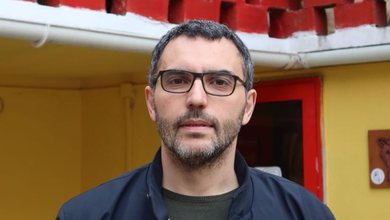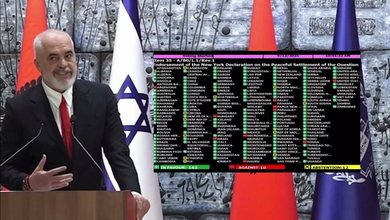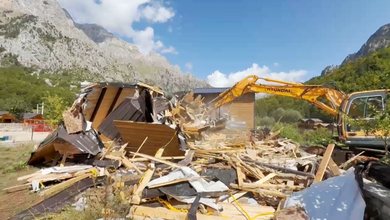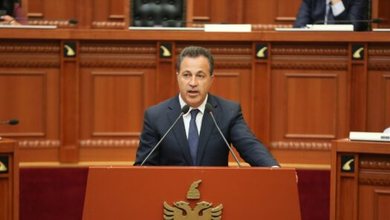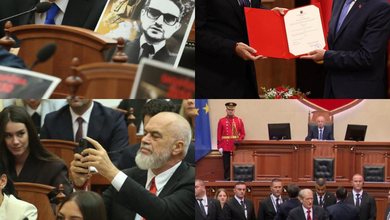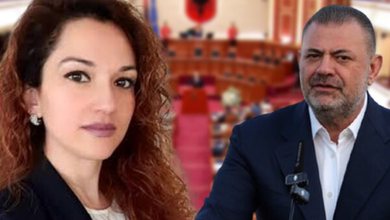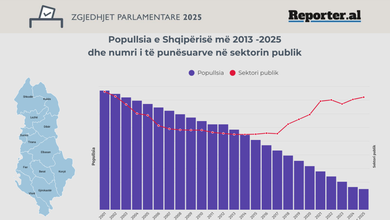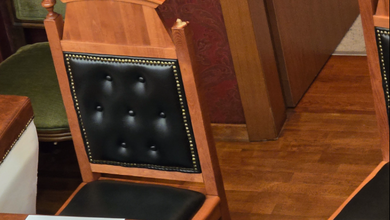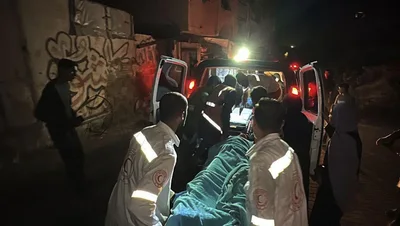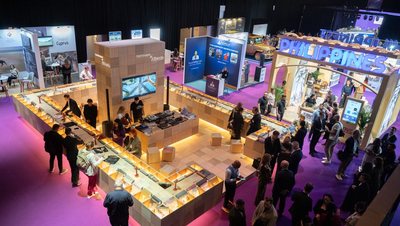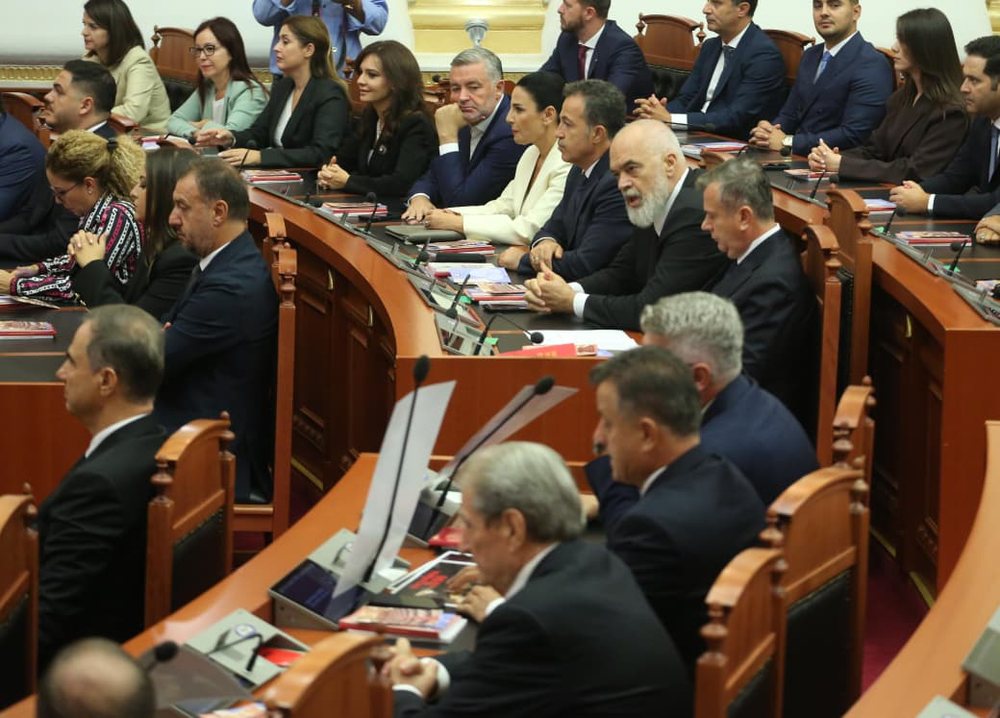
The 11th parliamentary legislature, which emerged from the May 11 elections, began its work on Friday with a constituent session, where 140 members of Parliament were sworn in: 83 from the Socialist Party, which is taking its fourth governing mandate, 50 from the Democratic Party with its allies, 3 from the Social Democratic Party, and 4 members from new parties.
Parliamentary work is divided between MPs' engagement in standing committees, where legal initiatives are reviewed, and plenary sessions, where they are voted on. But with the start of this new session, the "parliamentary architecture" of committee organization is expected to change according to suggestions made by Prime Minister Edi Rama during a party meeting.
On Thursday, speaking before the Socialist Party Assembly gathered to learn the names of the new government cabinet, Rama also presented his idea for parliament, proposing the renaming of permanent parliamentary committees, increasing their number, and establishing two special committees: for the review of territorial reform, which only a year ago the Socialist Party had voted against as unnecessary, and another committee for electoral reform.
Rama described the current names of the permanent committees as "ancient" and proposed their reorganization in terms of responsibilities, number of members, and renaming, with the justification that this will serve the negotiation process with the EU.
In this context, he proposed that the temporary committee led by Fatmir Xhafaj during the previous legislature be turned into a permanent committee, named "On Civic Initiatives, Cooperation and Institutional Oversight", which according to him will oversee the negotiation process and review legal initiatives submitted by citizens.
The "new architecture" conceived by the Prime Minister also includes a physical architecture of the Parliament building: practically a new building for plenary sessions and its technological modernization.
"Having said all this, the institution of the Albanian Parliament as a whole must be raised to another level of functioning and management," Rama concluded.
He called these "suggestions" and assigned the proposals to a "working group," but for lawyers and civil society activists, this behavior is illegal and authoritarian, as it assumes attributes that belong only to the Assembly.
Erida Skëndaj, head of the Albanian Helsinki Committee, told BIRN that: “The systematic and harmonious interpretation of our legislation, based also on the constitutional principle of separation and balance of powers, leads to the conclusion that any change that comes or is proposed in the number of parliamentary committees and their composition must be initiated by the body that has this title – the Assembly of the Republic of Albania.”
"Such proposals, such as the one for changing the number of parliamentary committees and deputies outside the parliamentary debate, in political formations and structures where the main goal was to present the political program and composition of the Council of Ministers the day before they were proposed in the first plenary session of the new legislature, reflect authoritarian elements that are perceived as a concentration of powers in the executive, weakening the other two branches of government," she concludes.
In this context, Skëndaj calls Rama's proposals "harmful to functional democracy and the fundamental principles on which the rule of law is built and functions in our country."
Lawyer Marash Logu also describes these proposals as contrary to the Constitution, the Rules of Procedure of the Assembly, and previous parliamentary practice.
"Such 'suggestions', made unilaterally, harm the spirit of democratic coexistence, consensus and parliamentary cooperation. They also harm Albania's European integration process, as they exclude the opposition from this process by removing it from the leadership of the parliamentary committee on European integration," he told BIRN.
According to Logu, the Assembly's Rules of Procedure clearly define the process for how parliamentary committees are appointed or structured: proposals for changes are made in writing by one or more MPs, notified to all MPs, and then reviewed by the Council for Rules of Procedure, Mandates and Immunity, composed of 10 MPs with equal representation between the majority and the opposition.
"This equality was intended to ensure that any change to the Assembly's rules of procedure would not be made unilaterally by the parliamentary majority, but would reach consensus between the parties," he says, adding that "the rules of procedure are the act that guarantees democratic coexistence between political parties in the Assembly and in this sense, they cannot be transformed into an instrument of the majority to limit the democratic space of opposition parties."
On the other hand, Skëndaj suggests that such changes, in addition to being encouraged to have a more comprehensive and consensual political debate among the various forces represented in the Assembly, should also be subject to a transparent and public consultative process, with civil society actors and independent experts in parliamentary law.
The current structure with 8 permanent parliamentary committees - 5 led by the majority and 3 by the opposition, has been in operation since 2004, when the Assembly's Rules of Procedure were adopted, while Rama's idea is for 11 permanent committees in a ratio of 7 to 4 in their leadership. /BIRN/


